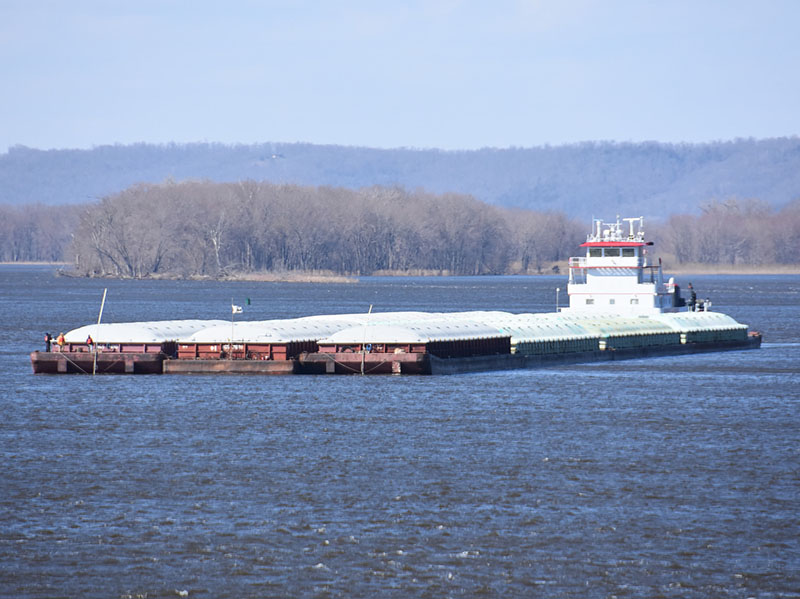The American Waterways Operators submitted a lengthy list of recommendations to the Coast Guard for changing regulations, from amending requirements for reporting marine casualties to eliminating some ballast water reporting requirements.
In a 12-page letter to the Coast Guard office for commercial regulation and standards, AWO offered the advice in response to a Coast Guard solicitation to industry – part of the Trump administration’s efforts toward regulatory reform. The group previously made a similar submission to the Environmental Protection Agency.
AWO is already getting one of the top items on its wish list: establishing equivalency between electronic and paper charts. As the group was preparing its July 25 letter, Coast Guard officials issued a revised Navigation and Vessel Inspection Circular 01-16, offering guidance to allow electronic charting systems to satisfy legal requirements.
That change came about through recommendations from AWO and the Coast Guard’s Towing Safety Advisory Committee, as AWO noted in its recent newsletter:
“Vessels that operate inside the territorial sea baseline may utilize a system of their choice as long as the chart is displayed at a sufficient scale and level of detail. Vessels that operate outside the territorial sea baseline must utilize a system that meets International Electrotechnical Committee or Radio Technical Commission for Maritime Services standards. This change addresses AWO’s concern with the previous version of the NVIC, which required all vessel operators to use systems meeting the RTCM standards.”
In its pitch for other changes, AWO contends regulatory reform in the barge industry will have broad economic benefits:
“In addition to being an integral part of the U.S. intermodal transportation system, the industry is the safest and most fuel efficient of any surface transportation mode. Therefore, regulations that compromise the safety of towing vessels and their crewmembers, that impose unnecessary costs on companies operating towing vessels or barges, or that result in the diversion of cargo to other modes of transportation are bad not only for the industry, but for the U.S. economy and marine environment as well.”
Beyond its top recommendation for electronic chart equivalency, AWO calls for the Coast Guard to:
- Repeal inappropriate and unnecessary firefighting training requirements for inland mariners;
- Implement improvements to the marine casualty reporting program to decrease the reporting of low severity incidents;
- Cap the annual inspection fees for towing vessels that utilize the Towing Safety Management System option under Subchapter M to prevent duplicative costs;
- Eliminate unnecessary ballast water reporting requirements;
- Modify regulations to permit individuals carrying a letter of designation to continue to supervise fuel transfers on inspected towing vessels;
- Repeal the requirement for inland towing vessels to contract with emergency towing resources;
- Publish guidance to institute a standardized process for the carriage of shale gas extraction wastewater in bulk; and;
- Support passage of the Commercial Vessel Incidental Discharge Act to rationalize the regulatory regime for vessel discharges.
- Review security-related regulations and reassess their security benefit and economic impact.




